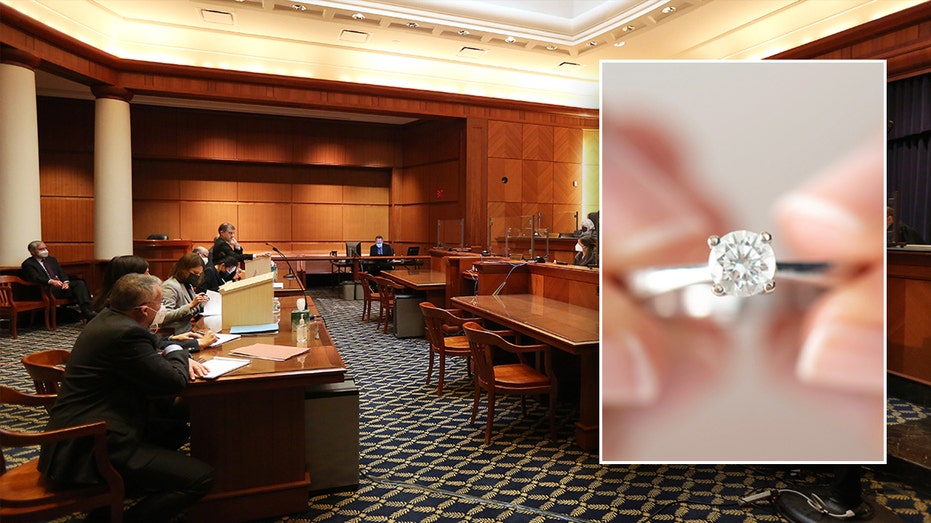Massachusetts Supreme Court Rules on Ownership of $70,000 Engagement Ring
In a landmark decision, the highest court in Massachusetts has overturned a long-standing state rule regarding the ownership of engagement rings in the event of a broken engagement. The court ruled that the ring must be returned to the person who purchased it, regardless of who was at fault for the end of the relationship.
The case involved Bruce Johnson and Caroline Settino, a former couple who began dating in the summer of 2016. According to court documents, Johnson showered Settino with extravagant gifts and vacations throughout their relationship. In August 2017, Johnson proposed to Settino with a $70,000 diamond engagement ring after seeking her father’s permission.
However, their relationship soon deteriorated. Johnson claimed that Settino became critical and unsupportive, neglecting to accompany him to his prostate cancer treatments and berating him. Suspicious of her behavior, Johnson discovered text messages on Settino’s phone from an unknown man, suggesting an affair. Confronted with the evidence, Johnson ended the engagement, sparking a legal battle over the ownership of the expensive ring.
Initial rulings in lower courts were conflicting, with one judge ruling in favor of Settino keeping the ring and another in favor of Johnson. The case eventually reached the Massachusetts Supreme Judicial Court, which settled the matter in September of this year, ruling that Johnson should retain ownership of the engagement ring.
The court’s decision marks a departure from a precedent set nearly 70 years ago, which stated that engagement rings are conditional gifts that can be returned if the engagement is broken off and the recipient is “without fault.” The justices stated that the concept of fault should no longer govern ownership rights over engagement rings, aligning with the majority of jurisdictions that have addressed the issue.
Stephanie Taverna Siden, Johnson’s lawyer, expressed satisfaction with the court’s ruling, calling it a “well-reasoned, fair, and just decision” that moves Massachusetts law in the right direction. On the other hand, Settino’s lawyers expressed disappointment but acknowledged the court’s decision to follow the prevailing rule in other states.
The court’s decision has sparked a debate about the legal status of engagement rings and whether they should be considered conditional gifts. Settino’s lawyer, Nicholas Rosenberg, argued that the notion of an engagement ring as a conditional gift is outdated and should not be a legal loophole, asserting that a breach of a promise to marry is not an injury recognized by law.
The Massachusetts Supreme Court’s ruling on the ownership of the $70,000 engagement ring has implications not only for the parties involved but also for the broader legal landscape surrounding engagement rings. As the debate continues, it remains to be seen how other states will address this issue and whether the concept of fault will continue to play a role in determining ownership rights over engagement rings.



